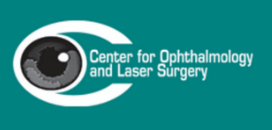Low vision is an ocular disorder in which a person has a difficult time performing simple tasks, such as reading, watching television, writing, driving, and even recognizing faces. Low vision mainly occurs when certain eye diseases have impacted a person’s ability to enjoy full vision. These diseases and conditions commonly include glaucoma, macular degeneration, diabetic retinopathy, and retinitis pigmentosa.
With each of these eye conditions, a person will gradually lose use of his or her vision until he or she is totally blind. Low vision occurs before a person is blind, but after he or she has lost a considerable amount of vision. Low vision can also be caused by an injury to the eye or even a brain injury.
Symptoms of low vision include:
- You cannot see well, even with the aid of glasses and contact lenses
- You find it difficult to tell colors apart
- You have trouble with glare, especially at night
- Lights seem dimmer than normal
- You find it extremely difficult to see at night
- You’re having trouble seeing with your peripheral vision
It’s important to note that low vision isn’t caused by the natural aging process; however, it is far more common in older individuals. Therefore, it’s important to schedule regular appointments with your ophthalmologist to ensure that you prevent the onset of low vision.
Diagnosing low vision involves routine eye exams and questions about your family’s medical history. If you have a family history of glaucoma or any eye diseases that can cause low vision, your ophthalmologist may run additional tests to determine how well you currently see. Many individuals mistake low vision as a normal part of the aging process; therefore, it’s important to be honest with your ophthalmologist about any vision loss and related symptoms you’ve been experiencing. There is no treatment to get your vision back, so your ophthalmologist will show you ways to maintain your independence with your reduced vision.
If you’ve experienced any of the symptoms of low vision, it’s important to schedule regular exams with your ophthalmologist. At the Center for Ophthalmology and Laser Surgery – serving the greater Fort Lauderdale, FL and surrounding Florida areas – Dr. Loeffler or Dr. Kirschenbaum and their staff members are dedicated to protecting your vision against the symptoms and development of low vision. Schedule an appointment with Dr. Loeffler or Dr. Kirschenbaum today to learn more about low vision and your options. We’re located in Lighthouse Pt. and we serve the Pompano Beach, Deerfield Beach, Boca Raton & Ft. Lauderdale areas. Call us at (954) 786-5353.

